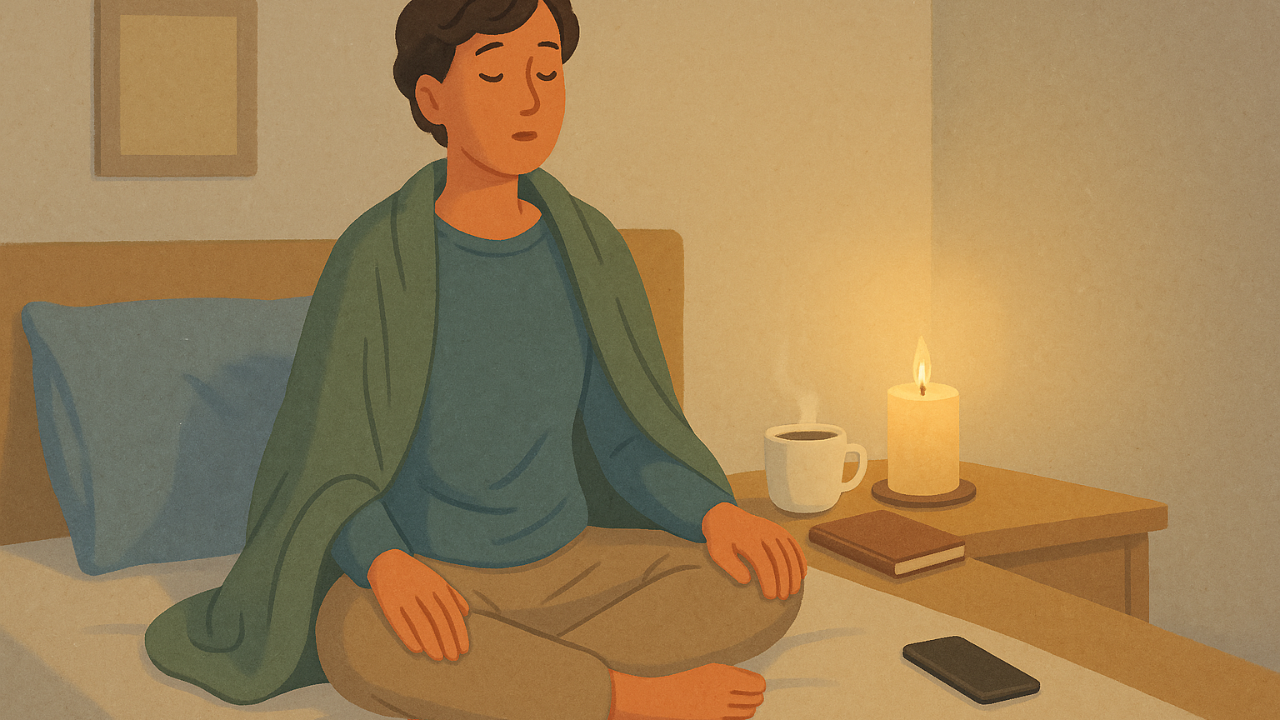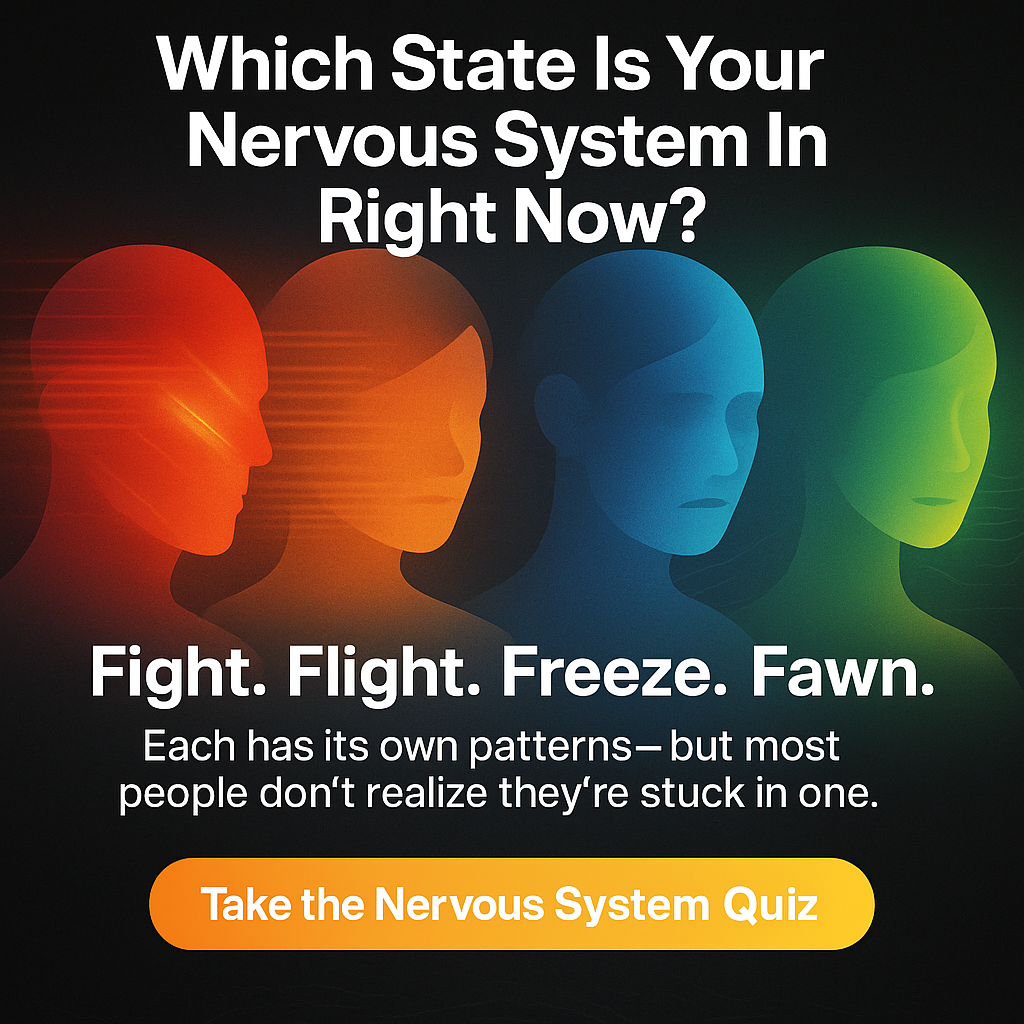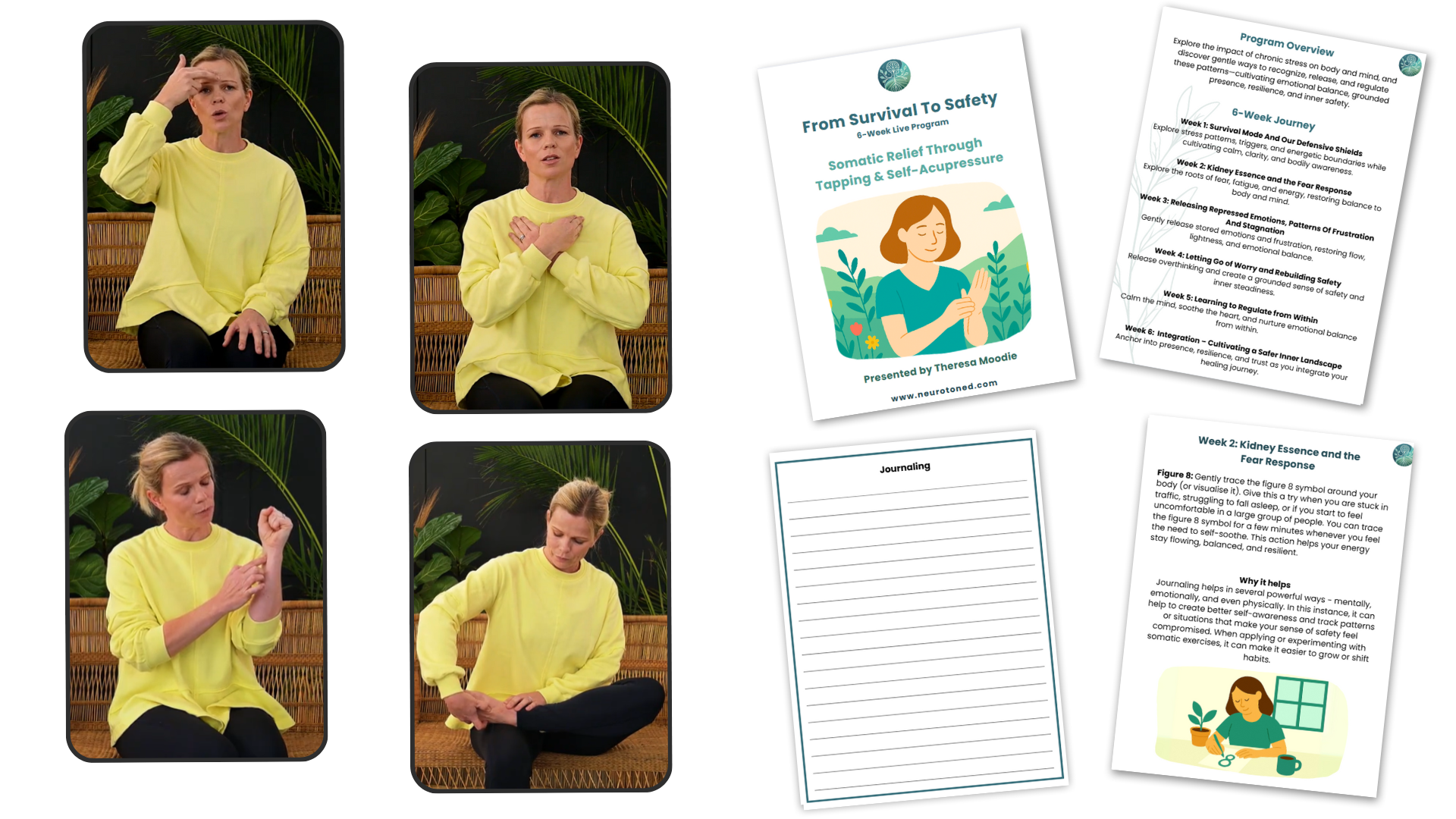
Screen-Free Evening Routine to Soothe Your Nervous System
A Letter to You
Evenings can be hard when your mind won’t slow down.
You reach for your phone to “relax,” but the scrolling leaves your body buzzing and your thoughts racing.
If your nights feel wired, not tired, you’re not alone.
Let’s build a screen-free routine that helps your nervous system exhale again.
Before you start, take the Stress Loop Quiz to see which stress pattern you’re in. It’ll help you know where to focus your calming energy.
Quick Answer
A nervous-system-friendly evening routine helps your body shift from alert to rest by lowering stimulation and increasing signals of safety.
That means dimming lights, slowing your breath, and engaging your senses gently instead of flooding them with screens or noise.
It’s less about doing more, and more about doing softly.
What a Screen-Free Evening Does for Your Nervous System
Blue light and stimulation from screens tell your body, stay awake. A screen-free evening, on the other hand, tells your body, you’re safe now. It lets your vagus nerve engage, lowering heart rate and softening muscle tension.
If you’ve ever felt like you could “jump out of your skin for no reason,” you’ve already experienced how chronic activation feels. This article, Why do I always feel ready to jump out of my skin for no reason?, explains how hyperarousal often traces back to stored survival energy. Your evening routine can help release it.
1. Soothe Your Senses, Not Your Scroll
After sunset, dim overhead lights and use warm tones. A candle, a lamp, or soft fairy lights are enough.
Wrap yourself in something heavy and soft. The steady weight can cue the body to relax.
If your thoughts begin to spiral, try orienting your senses to the room: notice shapes, shadows, and gentle sounds. This orienting practice helps your body recognize safety through sight and touch.
You might also add a small sensory anchor like a calming scent. Over time, your body associates that smell with winding down.
2. Move What’s Stuck
Screens keep your body still. Movement, even subtle, releases held stress.
Try standing and gently shaking your hands, arms, or legs—like a reset. If you need a guide, start with this somatic shaking practice for beginners.
Or, if you’ve had a wired day, slow things down instead. Gentle swaying or humming softly activates the vagus nerve. For more on this, see vagus nerve breathing for trauma recovery—tiny, rhythmic breaths that calm your system without forcing deep breathing.
3. Reflect Instead of Scroll
Replace your bedtime screen time with pen and paper.
You can write one line about how your body feels or something that brought a small moment of peace today. This physical act of writing helps discharge tension stored in your hands and shoulders.
If racing thoughts appear, know that’s part of the body thawing from stress. Try the Butterfly Hug technique—alternating taps on your shoulders as you breathe slowly. It gives your nervous system something rhythmic and safe to focus on.
4. Add a Gentle Closing Ritual
Ritual helps your nervous system learn: this is the time to let go.
It could be brushing your hair slowly, tidying one small space, or preparing herbal tea. The key is consistency, not complexity.
If you’ve had a long day of digital fatigue, pairing this with a short after-work downshift routine may help transition from alertness to calm.
5. A 7-Day Screen-Free Evening Plan
Day 1–2: Dim your lights and silence notifications an hour before bed.
Day 3–4: Add gentle movement or stretching.
Day 5–6: Create a sensory cue (scent, music, or tea).
Day 7: Reflect on how your body feels after seven nights.
Even 15 minutes without screens can make a difference. Over time, you may notice deeper rest and fewer spikes of evening anxiety.
If Your Mind Fights the Stillness
When you unplug, old tension can surface. You might feel agitation, sadness, or an urge to distract yourself. These are signs your body is releasing stored activation.
If you need a soft entry point, explore pendulation—a somatic exercise that teaches you to move gently between calm and activation, instead of trying to suppress sensations.
Closing Thought
Screen-free evenings aren’t punishment. They’re a love note to your nervous system. They remind your body that it doesn’t have to keep performing.
Begin small, repeat often, and let your evenings become a place where your body feels safe again.
If you want to discover which stress cycle you’re in, take the Stress Loop Quiz before you unwind tonight.
Disclaimer: This article is educational and not medical advice. If you have health concerns, consider speaking with a qualified professional.
More Gentle Reads
FAQs
1. Why do screens make it harder to fall asleep?
Screens emit blue light, which delays melatonin production—the hormone that signals your body it’s time to rest. They also keep your brain in an alert, problem-solving mode, preventing your nervous system from shifting into relaxation.
2. What can I do instead of scrolling before bed?
You can replace screen time with calming sensory activities. Try journaling, stretching, or practicing gentle vagus nerve breathing for trauma recovery to help your body transition from alert to calm.
3. How long before bed should I turn off screens?
Ideally, give yourself at least an hour without screens before sleep. But even 20–30 minutes of screen-free time can noticeably help your body unwind.
4. What if I feel restless when I try to unplug?
That restlessness is a sign of stored stress energy releasing. Gentle movement like a somatic shaking practice or the Butterfly Hug technique can help your system find safety and settle naturally.
5. How do I keep a screen-free routine realistic with modern life?
Start small. You don’t have to give up all screens—just choose one consistent activity before bed that doesn’t involve them, like making tea or writing. Over time, your body begins to associate that activity with rest.
6. What are some signs my nervous system is actually calming down?
You might notice slower breathing, softer muscles, or even a spontaneous yawn or sigh. Over time, you’ll likely fall asleep faster and wake with steadier energy, a signal that your body feels safer at night.
7. Can I still listen to something before bed?
Yes, as long as it doesn’t involve looking at a screen. Many people find slow, rhythm-based sounds or gentle storytelling helpful for calming the body before sleep.
Discover Your Vagal Tone
Find out how dysregulated your nervous system is and get your personalized roadmap to feeling calm, energized, and in control


